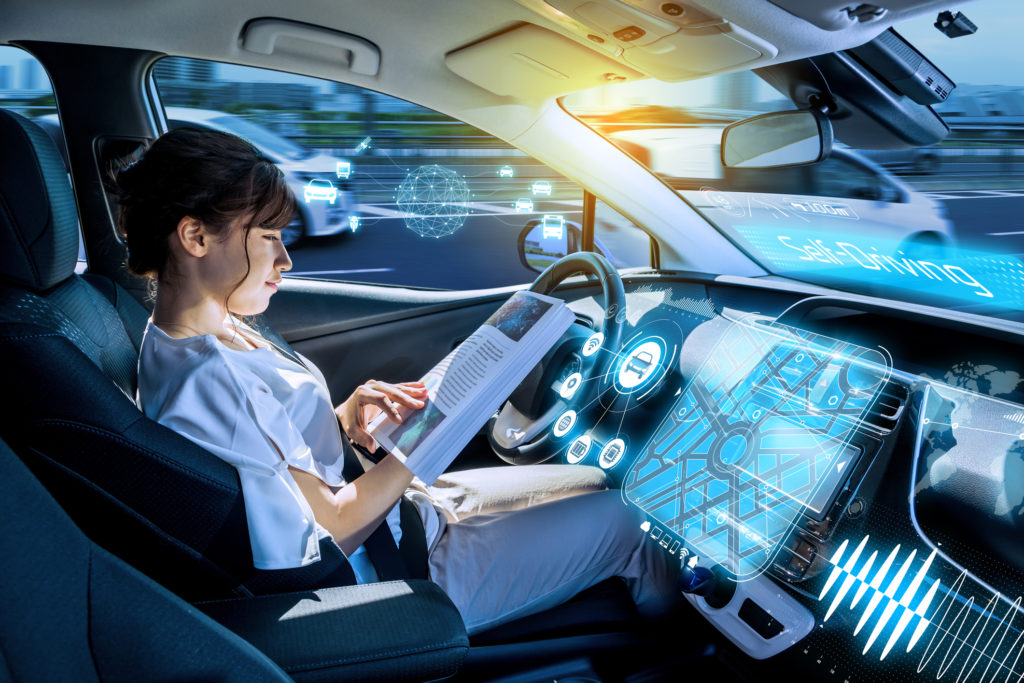US report: nearly 400 crashes of automated technical vehicles
DETROIT — Automakers reported nearly 400 crashes of vehicles with partially automated driver assistance systems, including 273 involving Teslas, according to statistics released Wednesday by U.S. safety authorities.
The National Highway Traffic Safety Administration warned against using the numbers to compare automakers, saying they weren’t weighted by the number of vehicles from each manufacturer using the systems or the mileage those vehicles have traveled.
Automakers reported crashes from July last year to May 15 on orders from the agency, which is broadly investigating such impacts for the first time.
“As we collect more data, the NHTSA will be able to better identify any emerging risks or trends and learn more about how these technologies perform in the real world,” said Steven Cliff, the agency’s administrator.
Tesla’s crashes occurred while vehicles were using Autopilot, “Full Self-Driving”, Traffic-Aware Cruise Control, or other driver assistance systems that have some control over speed and steering. The company has approximately 830,000 vehicles with designs on the road.
The next of a dozen automakers to report crashes was Honda, with 90, but Honda says it has about six million vehicles on U.S. roads with such systems. Subaru was next with 10, and all other automakers reported five or fewer.
In a June 2021 order, the NHTSA instructed more than 100 automakers and automated vehicle technology companies to report major accidents within one day of learning about them and to disclose minor accidents by the 15th of the following month. The agency assesses how the systems perform and whether new regulations may be needed.
NHTSA also said five people were killed in the driver-assistance crashes, and six were seriously injured.

Tesla’s crash rate could also be high as telematics is used to monitor its vehicles and get real-time crash reports. NHTSA said that other automakers don’t have such capabilities, so their words may be slower, or crashes may not be reported. A message has been left requesting comment from Tesla.
Tesla’s crashes accounted for nearly 70% of the 392 reported by the dozens of automakers. Although the Austin, Texas-based automaker calls its systems Autopilot and “Full Self-Driving,” it says the vehicles cannot drive themselves and drivers must be ready to intervene at all times.
NHTSA said manufacturers were not required to report how many vehicles they have on the road with the systems, nor were they required to report how far those vehicles have traveled or when the systems are in use. At this time, those numbers are not quantifiable, an agency official said.
However, the NHTSA may request such information at a later date. In the meantime, the new data has made it possible to learn about crashes much faster. At the moment, it uses the crash data to look for trends and discuss them with the companies, the agency said.
Officials said that the NHTSA has already used the data to initiate a recall, open investigations, and provide information for existing studies. They also said it’s hard to determine how many drivers use the technology.
“This will help our researchers quickly identify potential defect trends that may arise,” Cliff said. “This data will also help us identify accidents we want to investigate and provide more information about how people in other vehicles interact with the vehicles.”
Honda said it has packaged the systems to sell more, which could affect numbers. “The number of vehicles that could theoretically be involved in a notifiable event far exceeds the number of vehicles built by automakers with a less aggressive deployment strategy,” the company said.
Also, reports to NHTSA are based on unverified customer statements about whether automated systems were active during a crash. Honda said that those crashes may not qualify for reporting to the NHTSA after more data is collected.
The Alliance for Automotive Innovation, which represents most automakers, said the data collected by NHTSA alone is not enough to evaluate the safety of automated vehicle systems.
The NHTSA’s order also covered companies operating fully autonomous vehicles, with 25 reported 130 accidents. Google spin-off Waymo led with 62, followed by Transdev Alternative Services with 34 and General Motors-controlled Cruise LLC with 23.
Waymo has many more vehicles in service than other companies and operates a fully autonomous taxi service in Arizona and California.
In 108 accidents involving fully self-driving vehicles, there were no injuries, and only one was seriously injured. In most collisions, vehicles were hit from behind.

